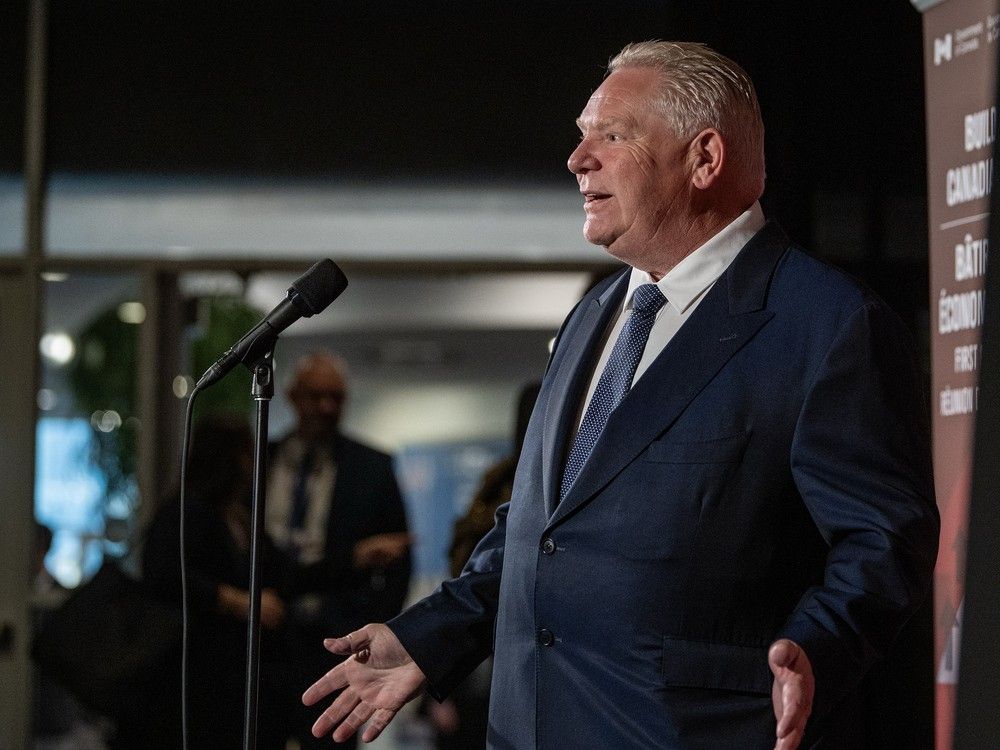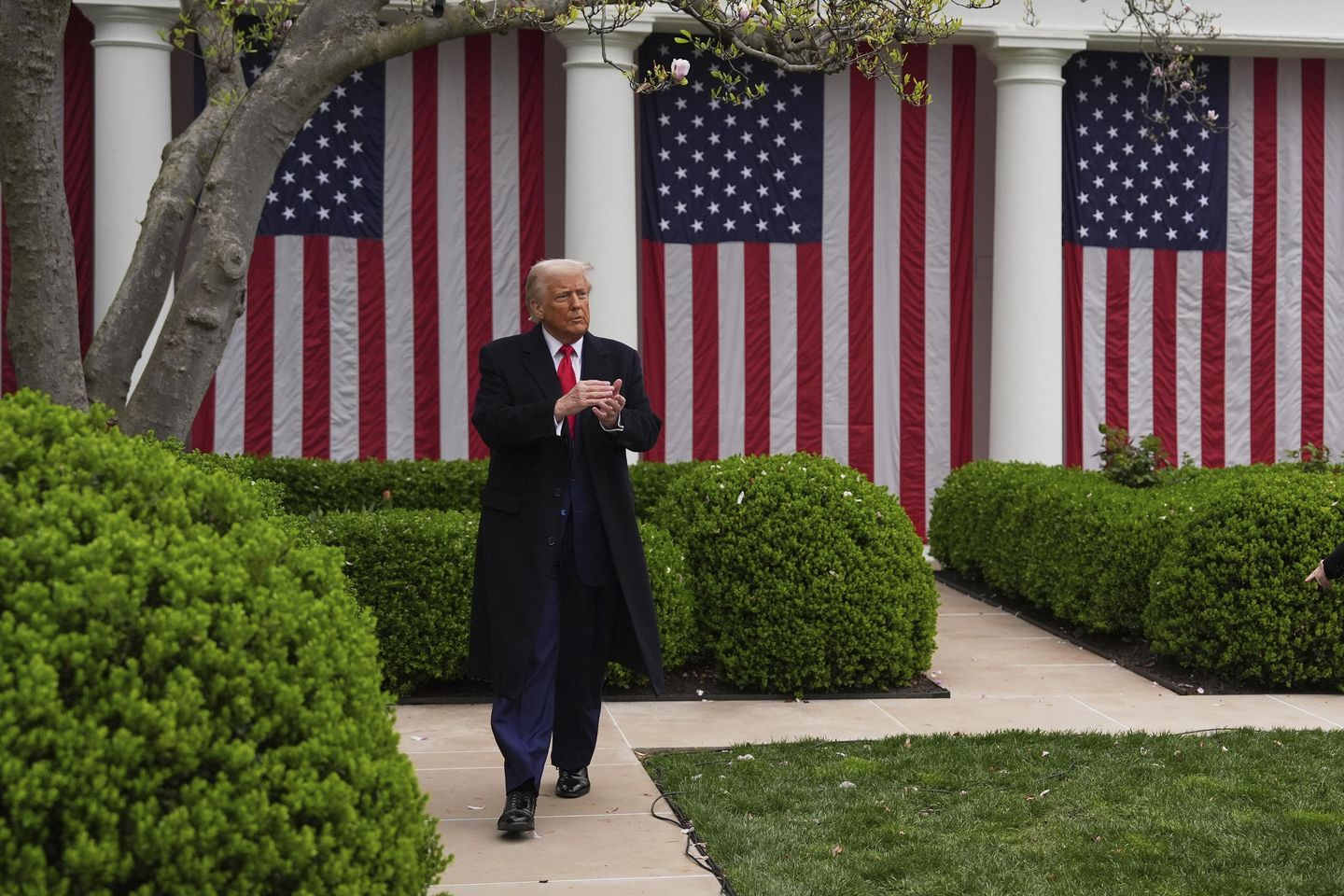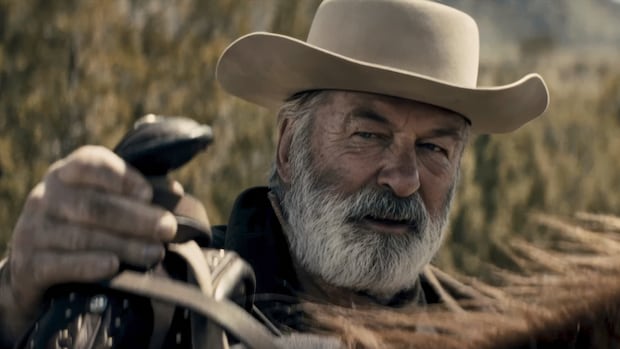
OTTAWA — Ontario Premier Doug Ford has apologized to Ontario First Nations for saying they cannot “keep coming hat in hand all the time to the government” for more money.
On Thursday, Ford met with chiefs who are part of Anishinabek Nation, which represents 39 First Nations in the province. Before the meeting started, he issued an apology to them and repeated his apology in public during a press conference after the meeting.
“I just want to say I sincerely apologize for my words, not only if it hurt all the chiefs in that room, but all First Nations,” he said.
Linda Debassige, Grand Chief of the Anishinabek Nation, said the chiefs in the meeting felt that Ford’s apology was “sincere.”
“We are looking at today as a new day going forward,” she said.
Ford made those comments on Wednesday
over concerns that First Nations in the province have over the passage of Bill 5, which gives the province the power to suspend municipal and provincial laws for projects through so-called special economic zones.
Ford has said the mineral-rich Ring of Fire region in northern Ontario will be declared the first such zone. While First Nations have said they want to be part of economic development, they are outraged by the government’s decision to proceed with legislation before consulting them.
Ford dismissed those concerns during an unrelated press conference.
“This is like handing an opportunity on a silver platter to First Nations that, by the way, I have treated like gold,” he said. “But there’s going to be a point that you can’t just keep coming hat in hand all the time to the government, you’ve got to be able to take care of yourselves.”
Ford continued: “When you literally have gold mines, nickel mines, every type of critical mineral that the world wants, and you’re saying, ‘No, no, I don’t want to touch that, by the way, give me money’ — not going to happen.”
Assembly of First Nations (AFN) National Chief Cindy Woodhouse Nepinak urged Ford to withdraw his remarks in a letter sent Thursday, saying that his words “only serve to perpetuate racist stereotypes and are not acceptable in any way or circumstance.”
Ford justified his brash comments by saying he gets “passionate” on the issue.
“I want prosperity for their communities. I want prosperity for their children,” he said.
“As I said before, I’ll always respect treaty rights, and I’ll always respect the duty to consult, because without First Nations, we can’t get the critical minerals out of the ground. We can’t have the energy that we need, that the whole world wants,” he said.
“We’re going to work together. We’re going to get through this, and we’re going to have a great collaboration,” he added.
The federal government is also dealing with similar resistance from Indigenous peoples for fast-tracking a bill with the same number, C-5, which would also give cabinet sweeping powers to override federal laws to approve projects in the national interest. Like in Ontario, Indigenous peoples said they have not been consulted on the legislation beforehand.
This has led to chiefs promising a summer of discontent over C-5, which is expected to be passed in the House of Commons by the end of this week and in the Senate next week.
Kebaowek First Nation Chief Lance Haymond qualified the rushed legislative process that led to the creation of C-5 a “case study in how not to engage with Indigenous nations.”
“The conditions for an Idle No More 2.0 uprising are being written into the law as we speak,” he told the House of Commons transport committee late Wednesday night.
Prime Minister Mark Carney said section 35 of the Constitution — which provides protection to the treaty rights of Indigenous peoples in Canada — is at the “heart” of the bill and that it respects the principle of free, prior and informed consent.
He said the legislation also has to be seen in parallel with measures his government is taking to finance equity ownership for Indigenous participation. The government has notably doubled the Indigenous Loan Guarantee Program from $5 billion to $10 billion to help Indigenous peoples make major economic investments.
Carney said projects of national interest would only go ahead after consultation with provinces, Indigenous groups and stakeholders and only if conditions are met.
Liberal MP Marc Miller, who served as minister of Indigenous Services and minister of Crown-Indigenous Relations, said the entire process is about respect and building trust.
“You can’t do that through legislation. You have to do that by being patient and sitting down and talking to people in a respectful way,” he told the National Post.
— With files from Stephanie Taylor and the Canadian Press.
National Post
calevesque@postmedia.com
Our website is the place for the latest breaking news, exclusive scoops, longreads and provocative commentary. Please bookmark nationalpost.com and sign up for our newsletters here.



